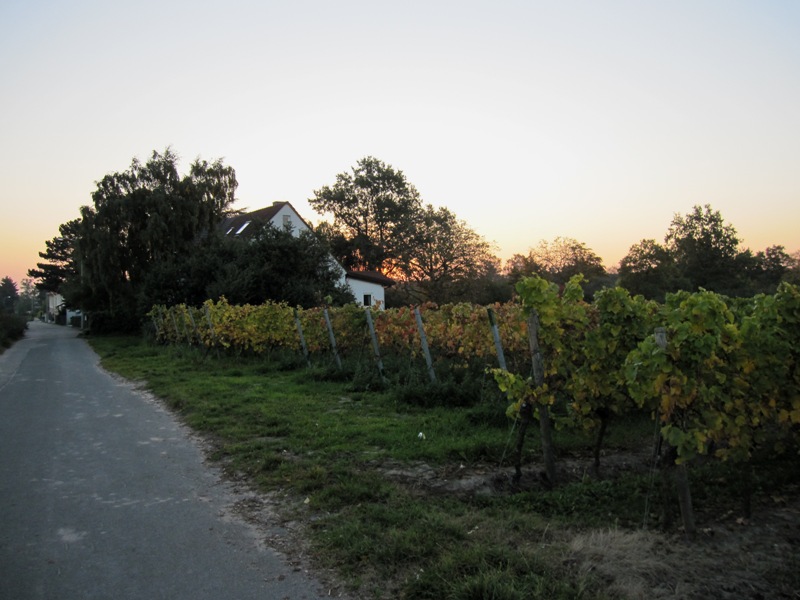 The times are changing in Freinsheim. But it’s still an
The times are changing in Freinsheim. But it’s still an 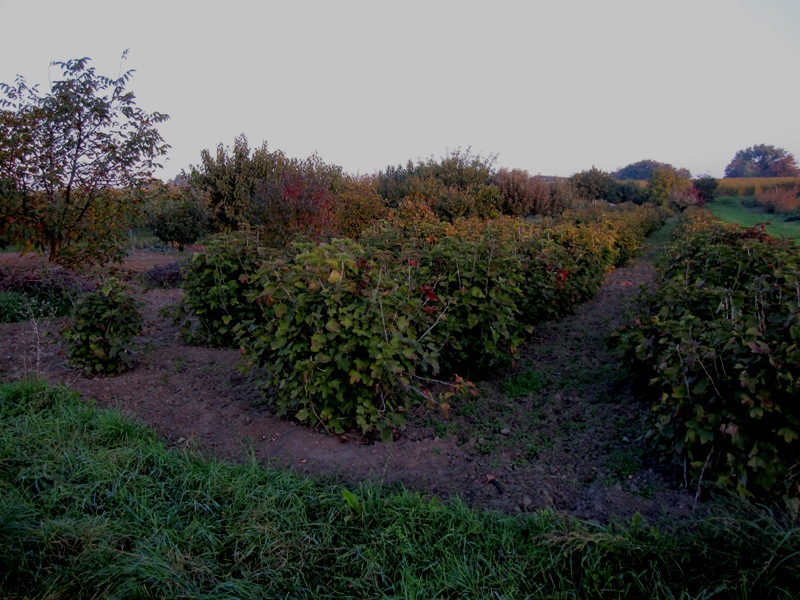 agricultural economy. On a dawn walk I visit a chestnut grove, kilometers of vineyards, a fruit tree and currant field.
agricultural economy. On a dawn walk I visit a chestnut grove, kilometers of vineyards, a fruit tree and currant field.
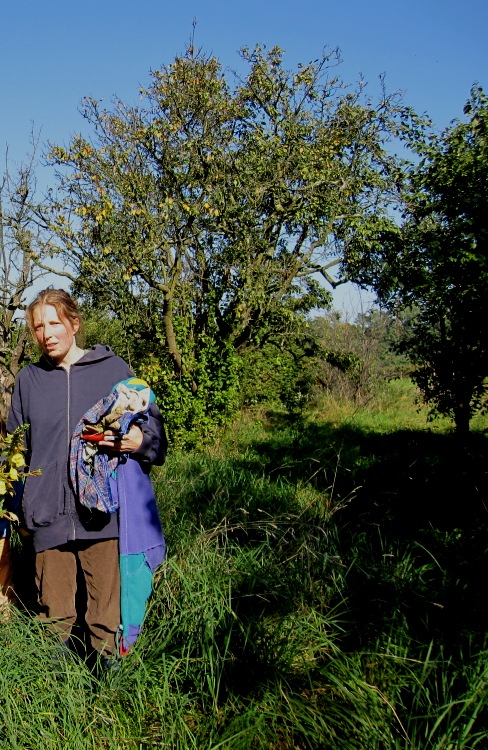 After breakfast, I work with Angela on her plum trees. She has inherited an old orchard, which is now a bird preserve. The trees are old, so no longer produce much fruit. For organically maintaining her land, she is being given new trees to plant next spring. She has worked hard to remove the blackberry brambles–only one enormous bush remains at the back.
After breakfast, I work with Angela on her plum trees. She has inherited an old orchard, which is now a bird preserve. The trees are old, so no longer produce much fruit. For organically maintaining her land, she is being given new trees to plant next spring. She has worked hard to remove the blackberry brambles–only one enormous bush remains at the back.
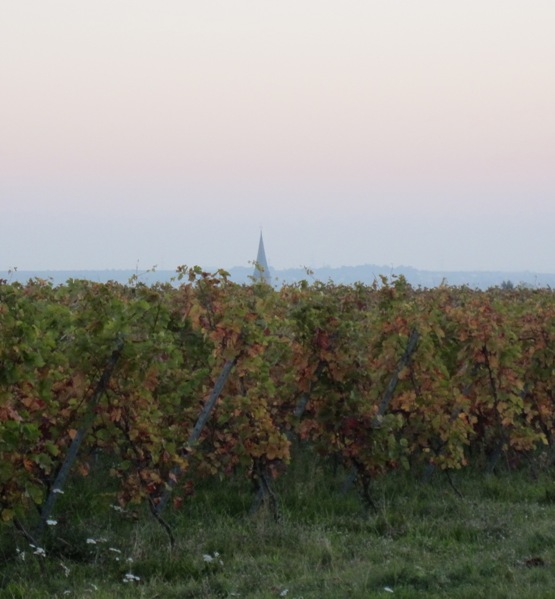 We work for an hour, and clear a square meter or two. Nearby, a bulldozer and dumptruck are regrading the landscape — it has been a project of the past several years in the area, to restructure the grape rows for easier machine harvesting. We are just calling it quits when the dumptruck driver walks over for a chat.
We work for an hour, and clear a square meter or two. Nearby, a bulldozer and dumptruck are regrading the landscape — it has been a project of the past several years in the area, to restructure the grape rows for easier machine harvesting. We are just calling it quits when the dumptruck driver walks over for a chat.
Angela talks to him about her plum field, about her bramble removal project that has taken all summer. He offers to have the bulldozer remove the last patch. I couldn’t stay, I had a lunch with Tante Inge to attend.
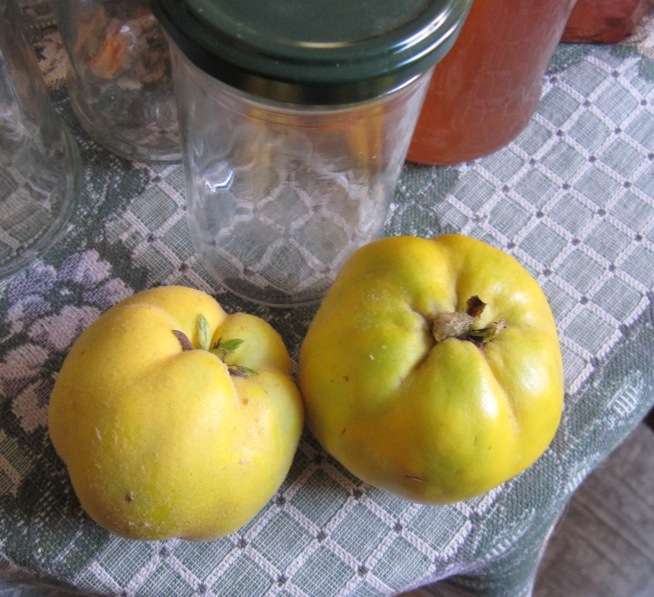 “You wouldn’t believe it,” Angela says to me later. “That whole blackberry patch, months of work, gone in five minutes.”
“You wouldn’t believe it,” Angela says to me later. “That whole blackberry patch, months of work, gone in five minutes.”
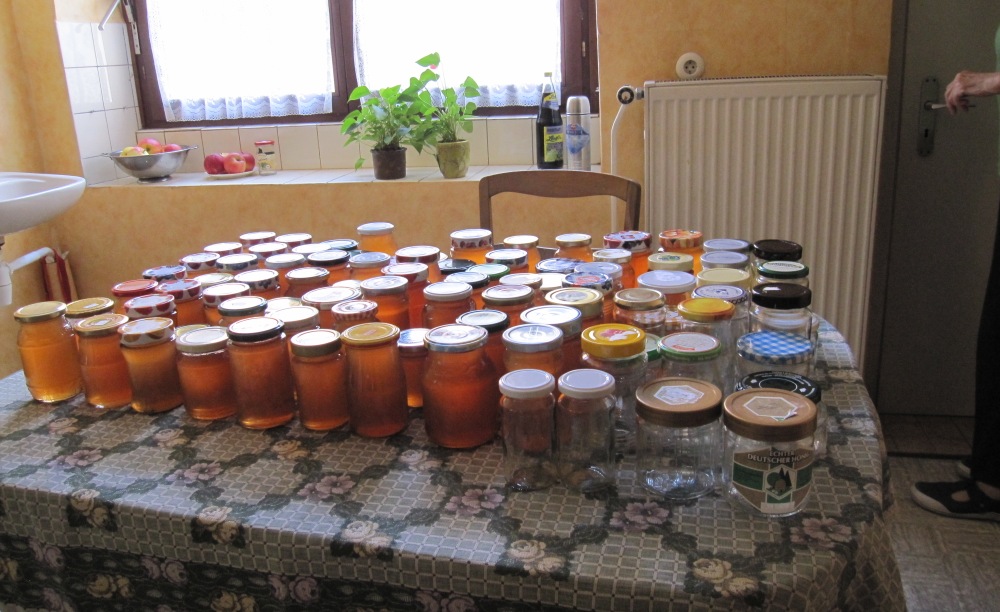 At Tante Inge’s house, Inge is making quince jelly. I score a jar, golden nectar of the gods.
At Tante Inge’s house, Inge is making quince jelly. I score a jar, golden nectar of the gods.
